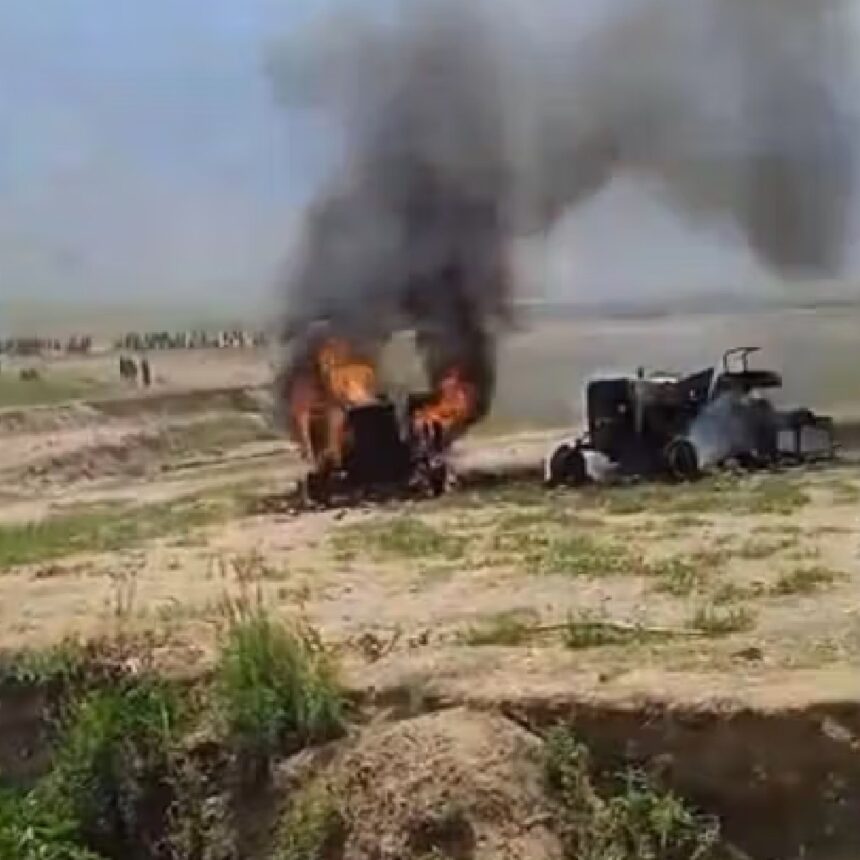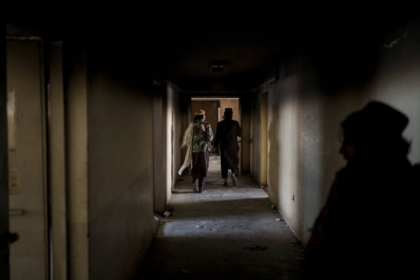RASC News Agency: In a dramatic escalation of tensions in northeastern Afghanistan, residents of Shahran in Khash district, Badakhshan, have clashed with Taliban forces over the group’s forced eradication of local poppy crops an action seen by many as both economically devastating and politically oppressive. According to multiple eyewitnesses and video footage obtained by sources, a large crowd of farmers and local villagers confronted Taliban counter-narcotics units on Thursday, June 29, after the militants began bulldozing their poppy fields without prior consultation or provision of alternatives. The standoff quickly devolved into violence, with enraged residents setting ablaze at least three Taliban-operated tractors used in the destruction campaign.
Footage from the scene shows Taliban vehicles engulfed in flames, with residents voicing their frustration at what they described as an “unjust war on poverty.” According to locals, the Taliban units deployed to the area had made no effort to negotiate with the community, instead arriving with machinery and armed escorts in an attempt to forcibly enforce the group’s poppy ban. In response to the backlash, Taliban fighters reportedly opened fire on the protesting civilians. While no confirmed casualty figures have been released, local sources report that Taliban helicopters have been spotted patrolling the skies over Khash and neighboring Jurm district a sign of growing alarm within the group’s ranks.
Taliban authorities in Badakhshan have thus far refused to issue any statement on the incident. This is not the first time Taliban forces have faced fierce resistance from local communities over their heavy-handed drug eradication policies. Earlier this month, in the village of Farghamanj in Jurm, residents similarly resisted a Taliban operation, which ended with the death of a civilian. Throughout the past year, several reports have emerged from Badakhshan and other northeastern provinces of spontaneous civilian uprisings against Taliban poppy eradication squads highlighting the deep disconnect between the group’s ideological agenda and the socioeconomic realities on the ground.
Despite their repeated claims of fighting drug production in line with Islamic principles, the Taliban’s approach to narcotics enforcement appears deeply flawed and selectively enforced. In certain regions under Taliban control, opium production continues unabated, often with the quiet approval or direct involvement of local commanders and allied trafficking networks. Critics argue that the Taliban’s so-called anti-drug campaign serves more as a propaganda tool to appease foreign observers than a meaningful domestic policy. By enforcing blanket bans on poppy cultivation in impoverished regions like Badakhshan without offering any viable economic alternatives the Taliban have pushed already desperate populations further into destitution.
Poppy remains a lifeline for thousands of Afghanistani farmers, especially in mountainous areas with little access to infrastructure, employment, or basic services. The Taliban’s unilateral crackdowns, often accompanied by intimidation and violence, not only endanger livelihoods but risk triggering broader unrest across regions historically resistant to their rule. As the humanitarian crisis deepens, observers warn that the Taliban’s inability or unwillingness to reconcile ideological enforcement with economic pragmatism may ultimately prove unsustainable, fueling a new wave of public discontent that even their authoritarian methods may fail to suppress.






